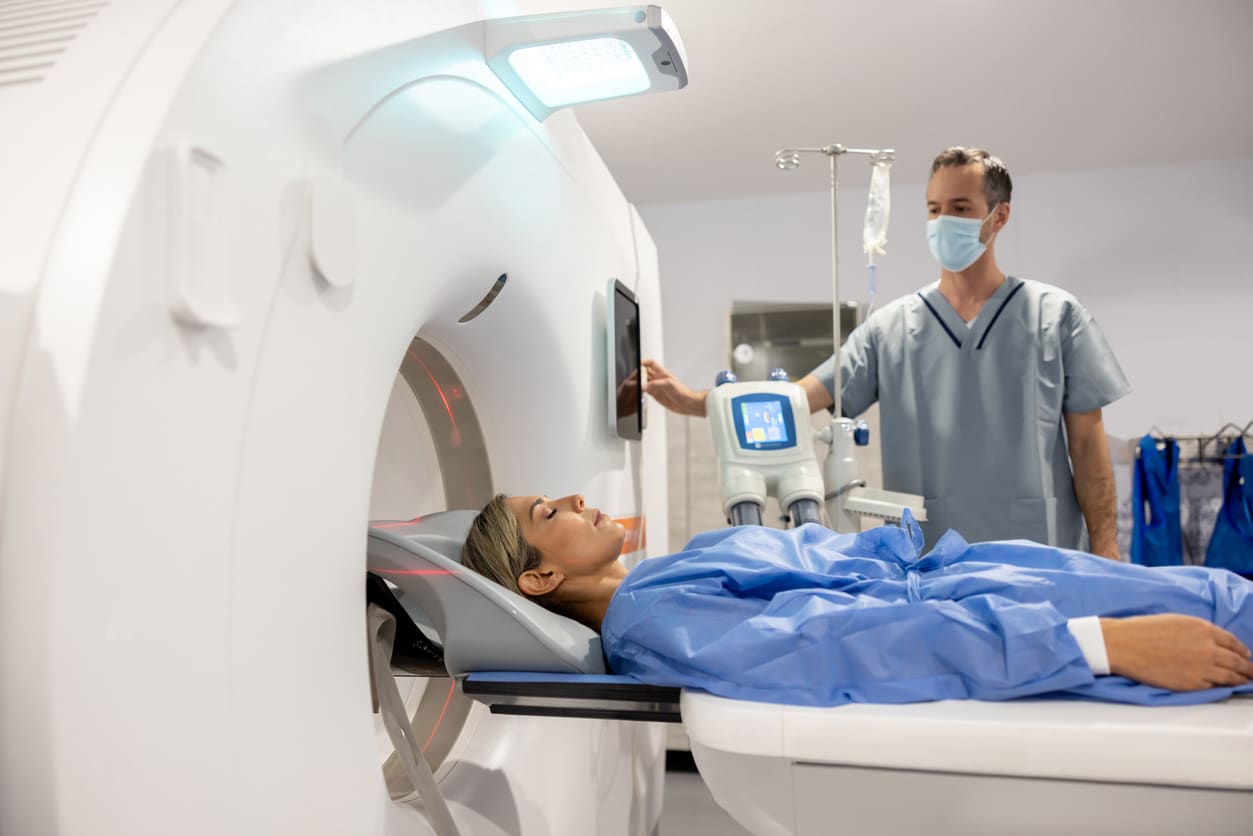Otosclerosis is a condition caused by abnormal bone remodeling in the middle ear. Your ear bone tissue renews itself throughout your life, replacing old tissue with new. When the tissue grows abnormally, otosclerosis can occur. Affecting more than three million Americans, otosclerosis prevents sound from traveling through to the auditory center, leading to mild to severe hearing loss.
Symptoms of otosclerosis may include but are not limited to:
- Hearing loss, especially low-pitch or whispered sounds
- Balance issues or vertigo
- Tinnitus
- Feeling that your voice is louder than it is
An ear, nose and throat (ENT) specialist will diagnose otosclerosis through one or all of the following tests:
- Computed tomography (CT) scan. Your specialist will use a CT scan to search for abnormalities in the bones and tissues of your ear.
- Tympanogram. A tympanogram will identify malfunctions in how your eardrum vibrates in response to pressure in the ear canal.
- Audiogram. An audiogram will measure your level of hearing loss. You may receive several audiograms throughout your treatment to assess progressing hearing loss.
Otosclerosis treatment will vary depending on the severity of your condition, the location of the irregular bone causing it and your eligibility for surgery. Let’s look at a couple of treatment options that may be available to you.
Treating Otosclerosis With a Stapedectomy

An ENT specialist will place a prosthesis in the middle ear during a stapedectomy. The prosthesis replaces the stapes bone to allow sound to travel through the ear to the auditory center. Eligibility for stapedectomies will vary based on the severity of hearing loss and other medical conditions that may impact surgical success.
Treating Otosclerosis With Hearing Aids
Hearing aids cannot cure otosclerosis but rather manage its symptoms. By amplifying speech sounds, hearing aids can increase the ease of communication. Talking with friends or ordering your favorite latte at Hendershot’s will feel much easier. Although the devices cannot stop otosclerosis from progressing, they may be an excellent option for those who are not good candidates for surgery.
For more information on treating or managing your otosclerosis, contact ENT of Athens today to make an appointment with one of our trusted specialists.